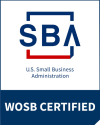After analyzing thousands of IEPs over the past 15 years, we’ve settled on the top five IEP mistakes. If you’re a past client of ADAM ESQ or have referred special needs children to us, you probably already know how to navigate an IEP. But there are many other families, teachers and special education service providers who may be able to benefit from this information. So please feel free to forward, share, post, text, tweet or otherwise give a “shout out” to your friends warning them about these frequent IEP mistakes. You can make a difference in the education of a special needs child.
#5 – Failing to Prepare
Generally, IEP meetings take place annually and your child’s individualized education program is set until the next IEP anniversary. (Triannual IEP meetings occur every three years and include updated assessments in all areas related to your child’s suspected disability). Parents assume that teachers and school district “experts” have zeroed in on their child’s needs and know what’s best for them. They rely on these expert recommendations and believe there is nothing that they can do to change them. Therefore, parents fail to do their homework prior to the IEP meeting. This is a mistake. Teachers and other school personnel simply may not have had the proper training or the time to focus in on your child and may make mistakes in determining classifications, goals, academic levels, placement and the like. Full parent involvement at every stage of the IEP process is critical. Here’s how to prepare:
- 1 to 2 weeks before IEP team meeting. Every member of the IEP team should review your child’s school file so that they can be reminded of his history and unique needs. What interventions have worked? Which ones were least successful? How have his needs changed?
- 2 to 7 days before IEP meeting. Typically, new testing reports are given to parents during the IEP meeting allowing only a brief review. Insist on getting any standardized test results or assessments before your child’s annual or triannual IEP meeting so that you can ensure the testing results are accurate and you have time to frame any questions about the testing. These reports often provide good clues as to what level of service (if any) will be offered at the upcoming IEP meeting.
- 2 to 3 days before IEP meeting. If you have had independent reports prepared for your child, consider sharing them with your child’s IEP case coordinator at least several days prior to the IEP meeting so that your reports can be fully considered by the full IEP team.
- 1 to 2 days before the IEP meeting. Review the Goals and Objectives pages from last year’s IEP. Make a copy of these pages to take with you to the IEP meeting so that you can get specific answers about your child’s progress on each goal. (These progress updates should have been provided to you throughout the year, but often are overlooked). Jot down any new goals that you believe would be helpful for your child in addressing his unique needs.
- 24 hours before the IEP meeting. This is your deadline to provide written notice to the IEP case manager if you want to exercise your right to audio record the IEP meeting. Consider recording if your meetings tend to be confrontational. This may help to maintain civility.
- The evening before the IEP meeting. Many school districts now maintain updated grades on-line. Log-in to your school district’s online program and review any attendance, report cards, grades and disciplinary records. Print a hard copy and bring it to the IEP meeting with you if you have any concerns.
- During the IEP meeting. Even if you don’t feel fully prepared, you may want to attend the IEP meeting anyway and listen to the school district’s offer of special education programming for your child. Request that the IEP notes reflect that you were not provided with the documents that you requested (like school records, assessments, progress reports, etc.) in advance of the IEP meeting. Ask for copies of all assessments and the unsigned draft IEP to take home with you for your review. Do not leave the meeting without them. If your school district refuses to allow you to review these important documents before you sign your consent to the IEP, make at least two attempts–in writing–to obtain them. Then consider contacting an attorney or advocacy organization for representation.
As with children, all cases are different. This series is not intended to provide legal advice or cover all IEP situations. However, it is generally best for parents, teachers, school districts, and most importantly special needs children, if everyone is prepared and fully informed prior to developing and finalizing IEPs that set educational programming for a year or more.
Mistake #4 – Failing to Prioritize.
The 2016 Wrightslaw Special Education and Advocacy Conference
Ms. Adams will be sponsoring the first Nevada Educational Advocacy Center for Children and Youth conference on Thursday, September 15, 2016 at Best Western Airport Plaza 1981 Terminal Way, Reno NV.
IEP and 504 Plan Legal Workshop
We appreciate your continued support and referrals. ADAMS ESQ now has offices throughout California and Nevada to serve you. If you believe you may need legal assistance as your child transitions to the new school year, please contact us toll free at: 800-785-6713 or visit us on the web at:www.AdamsEsq.com
— Jean Murrell Adams
“Making a difference…one child at a time.”

